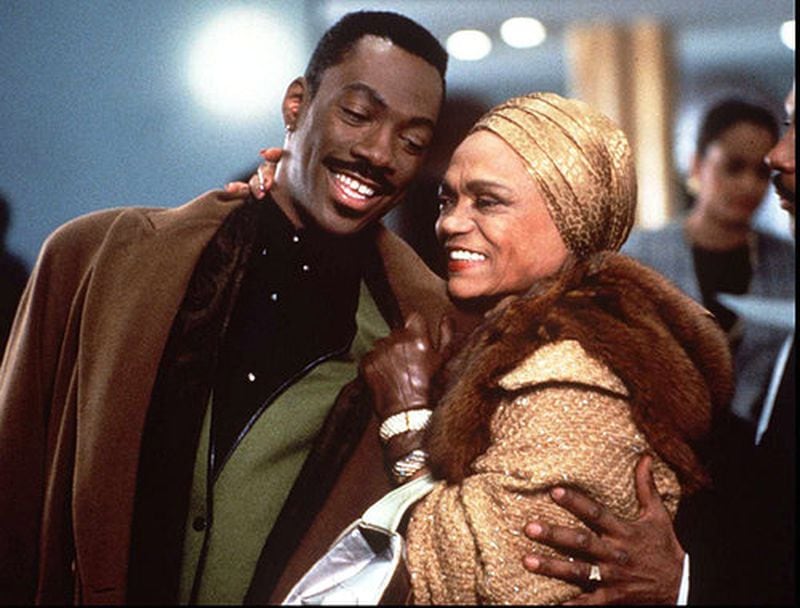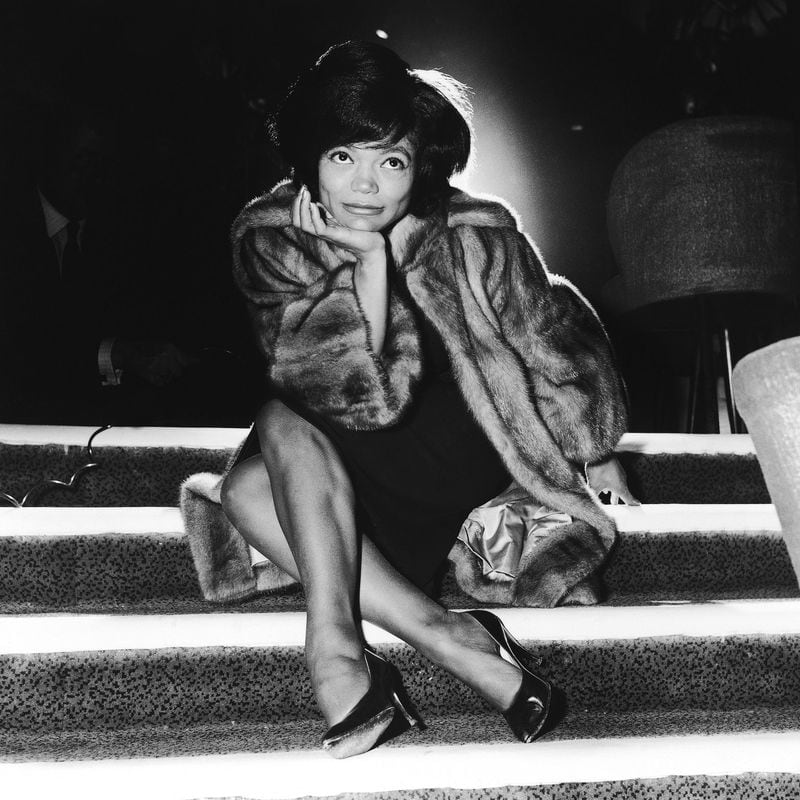Eartha Kitt’s voice practically purred audiences into submission in her music and films.
Kitt was an internationally known dancer, singer and stage and film actress. While petite in stature, she had a larger-than-life presence on stage and was a force to be reckoned with in life. The world described her as a sex kitten. To those who knew her, she was Eartha, which was also her birth name.
Her daughter, Kitt Shapiro, says her mother found that label “a little more comical than anything else because she was, literally, such a down-to-earth-person, so connected to the earth. She grew her own vegetables and cultivated her own garden. She recycled. To be coined a sex kitten, she was anything but.”
The two were extremely close. Eartha Kitt would introduce them this way: “I’m Eartha and she’s Kitt,” as if “I completed her somehow.”
Her mother’s unique, teasing voice is heard on such hits as “Santa Baby,” “C’est Si Bon” and “Love for Sale.”
Credit: AP Photo/File
Credit: AP Photo/File
»RELATED: Read the AJC's full Black History Month Series
Her film and television credits included “St. Louis Blues,” “Anna Lucasta” and a brief stint on the “Batman” television series as Catwoman, taking over from Julie Newmar and becoming the first black super-villainess on mainstream television. She was nominated for an Emmy for a guest spot on “I Spy” in 1966 and reached younger audiences in her role of Lady Eloise in the 1992 film “Boomerang,” which starred Eddie Murphy and Halle Berry.
She captivated audiences across the world. She spoke four languages and could sing in seven, including French, Japanese and Turkish, according to The New York Times and other publications.
»RELATED: Ella Fitzgerald: Most celebrated jazz singer of her generation
Kitt’s career lasted more than six decades, but there was more to the outspoken South Carolina-born entertainer than singing and acting.
She believed her artistry and celebrity should be a vehicle to push for social change — whether it was opposition to the Vietnam War or racial injustice. For instance, she went to South Africa but refused to perform unless the audiences were integrated.
A passionate political and social activist, Kitt worked with black youths and was an admirer of the work of the Rev. Martin Luther King Jr.
In honor of King’s birthday in January, Kitt Shapiro posted a photo of a May 17, 1963, telegram from King to her mother at the Apollo Theater in Harlem. She also included a photo of her mother with Sammy Davis Jr., Sidney Poitier and Nancy Wilson at King’s funeral years later.
In the telegram, King, president of the Southern Christian Leadership Conference, thanked the entertainer for her work.
“From democracy battle front in the deep South we extend our our sincerest thanks to you one of our nations most talented artist. What you have done this week speaks clearly of your earnest and deep concern for the freedom of our people [...] in Birmingham Alabama and elsewhere in the South. May God bless you and your family and all the wonderful people in the Harlem Apollo Theatre who have made their contribution in response to your generous example.”
In 1968, Kitt was invited to the White House by Lady Bird Johnson for a ladies luncheon to talk about how to address juvenile delinquency. Initially, she didn’t want to go, but was implored to attend.
Credit: AP
Credit: AP
At some point, Kitt told the first lady, “You sent the best of this country off to be shot and maimed. They rebel in the street. They will take pot. … And they will get high. … They don’t want to go to school because they’re going to be … off from their mothers to be shot in Vietnam.”
She received hundreds of letters — some racist and others supportive — and numerous death threats. The CIA opened a dossier and she lost jobs.
President Jimmy Carter invited her back to the White House in 1978, and that year she earned her first Tony nomination for her work in "Timbuktu!," according to her obituary in The New York Times.
Eartha Mae Keith, who was part Cherokee, African-American and white, was born in the rural town of North in South Carolina. She had a poor, hard and abusive childhood filled with rejection and physical abuse.
Her white father was never part of her life. When her mother wanted to marry, she gave Kitt to another family because the man didn’t want that “yella gal” in his home. “It meant being an illegitimate child and the wrong color,” she shared in an emotional 1989 television interview with Terry Wogan. “You are not wanted by the blacks and the whites couldn’t care less.”
The family treated her like a “work mule.” Shapiro said her mother was physically, sexually and emotionally abused.
“She never felt that she had any roots,” she said.
Eventually, she went to live with an aunt in New York. Her aunt, though, was strict and abusive. Kitt kept running away and would ride the subway trains from one end of Manhattan to the other and back.
The emotional scars from her childhood followed her in some ways. In that same 1989 interview with Wogan, Kitt said she was running away from rejection and not being accepted.
“I can tease as Eartha Kitt, but as Eartha Mae, forget it,” she told Wogan. She said she never had that kind of security as Eartha Mae. “That little ugly duckling was always told she’s an ugly duckling. Nobody wants you. And she’s trying so hard to find somebody that says, ‘Eartha Mae, it’s all right, you’re wanted, too.’”
Although she didn’t find that confirmation and love in childhood, Kitt certainly found it from the public and her beloved daughter.
During her career, she met Albert Einstein, Winston Churchill and Queen Elizabeth II.
In her later years, Kitt was honored by her hometown and the state of South Carolina. Shapiro said a biopic about her mother is in the early stages of development. She hopes to release more information later this year.
Kitt died on Christmas 2008 from colon cancer. She was 81.
Throughout February, we’ll spotlight a different African-American pioneer in the daily Living section Monday through Thursday and Saturday, and in the Metro section on Fridays and Sundays. Go to myAJC.com/black-history-month for more subscriber exclusives on people, places and organizations that have changed the world, and to see videos on the African-American pioneer featured here each day.
About the Author








